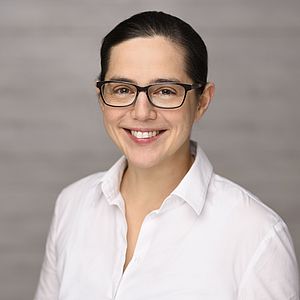
Photo: Deutsches Museum
Communication, Information, Media
Computers – the History of the Calculating Machine
The museum opened its first exhibition on computers more than 30 years ago. This exhibition examines the amazing history of the development of computing technology across an area of 1,000 square metres.
How were Computers born?
Computers have become an indispensable part of our everyday lives. But how has their technology developed over time? Embark on a voyage of discovery – from the very beginnings of computing technology and the accurate calculating machines of the 18th century, to Konrad Zuse’s first program-controlled computer, which ushered in the age of the universal computer. This would open up a new world in which ever larger amounts of data could be systematically displayed, stored and processed. Our journey then guides visitors through the information technology of the 1960s, from the introduction of the first computer chip to the development of home computers and large high-performance computers.
1735The oldest original mechanical calculating machine in the exhibition dates from around this period.
1941The year when Konrad Zuse created the world's first programmable binary computer, the Z3.
8,192The number of 51-bit data words that could be stored by the PERM computer in 1952.
“I think there is a world market for maybe five computers.”
Exhibition Themes
Large astrolabe made by Erasmus Habermel, front side with fixed star chart (rete), from the Kunstkammer of Rudolph II, signed: Erasmus Habermel faciebat '88, gilt brass, diameter 402 mm, Prague, around 1588, Inv.-Nr. 29028. Photo: Deutsches Museum
Mathematical Instruments and Analogue Computers
The Deutsches Museum collection contains a wealth of historical mathematical instruments. Sectors and protractors, astrolabes and sundials, slide rules and planimeters illustrate various analogue calculation methods with lengths and angles. The often great age of these instruments is irrelevant: used correctly, they still display the correct calculation results, thanks to their very precisely engraved scales. Electromechanical and electronic analogue calculators demonstrate the development of mechanical analogue calculating devices up to the 1960s.
Fully functional calculating machine capable of the four basic arithmetic operations, constructed by Johann Christoph Schuster between 1789 and 1792 in Uffenheim, Germany, Inv.-Nr. 5048. Photo: Deutsches Museum Digital | Konrad Rainer
Digital Computing
Nowadays, we associate the term “digital” with any information that is processed by a computer. However, the word actually has its origins in the Latin term digitus (meaning finger). We use our fingers to count – so the oldest digital computing device is our hand! This gave rise to the English term "digit".
This exhibition area is all about the history and mechanisation of computing: how does calculation with an abacus work? Who invented the first calculating machine? What major challenges had to be overcome and what inventions were necessary? When did calculating machines become a mass product? You will find answers to all these questions here.
Computer pioneer Konrad Zuse in front of his replica of the Z3 in the Deutsches Museum, June 1984. Photo: Deutsches Museum
Universal Computers
The age of the universal computer began in 1941 with Konrad Zuse’s first fully functional and programmable Z3 calculating machine. Experience first-hand the impressive difference in size of early computers: from early electromechanical relay computers to the electronic valve computers of the early 1950s, and the first transistor computers right up to the first computers with integrated circuits, or microprocessors. The exhibition also vividly illustrates the development of historical storage and output methods along with elementary logic circuits.
Kryha cipher machine, in open position, Alexander von Kryha, Berlin-Charlottenburg, around 1926, Inv.-Nr. 62797. Photo: Deutsches Museum
Cryptological Devices and Machines
Since the Second World War, the history of computer science has been closely intertwined with the history of cryptology. The exhibition’s cryptology cabinet features a small selection of cipher machines from the Deutsches Museum collection; it previews the forthcoming permanent exhibition “Image Script Codes”, which is expected to open in late 2021.
“There is no reason for any individual to have a computer in his home.”
Inside the Computers Exhibition
Brief Tour of the Computers Exhibition
Curator Carola Dahlke guides us through the exhibition and presents selected pieces from computing and microelectronics. The film is currently only available in German.
Facts
- 1,400 sqm exhibition area
- 700 exhibits
- Around 40 interactive activity stations
- The exhibition is on Level 3
Any Questions?
Do you have organizational questions?
Cornelia Schubert
Assistance to department heads, main department heads and curators
Susanne Schmölz
Assistance to department heads, main department heads and curators

